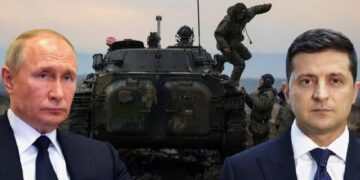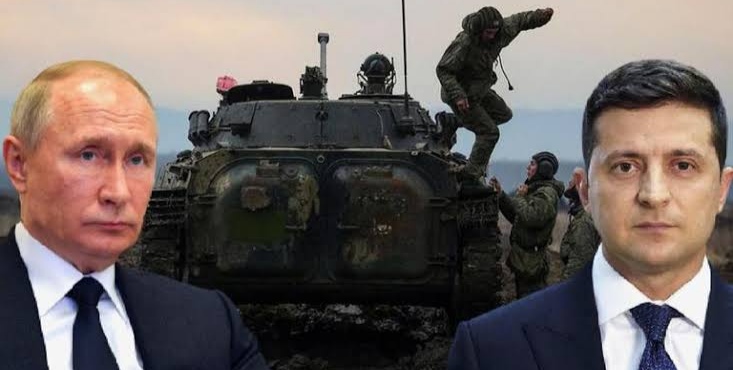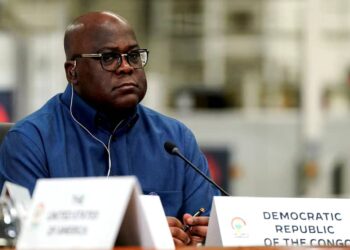By John Ikani
Former President and founder of the American Centre For International Leadership (ACIL), Stephen Hayes has fingered broken expectations and historical animosity as responsible for Russia’s invasion of Ukraine.
The invasion which started on February 24th has been on for over a month with both sides suffering caualities and loss of economic growth.
While Russia has been hit with numerous crippling sanctions, the war has cost Ukraine $564.9 billion, including more than 4,900 miles of damaged or destroyed roadways among other collateral damages.
Speaking on Channels Television Newsnight, Mr. Hayes who Witnessed some of the seismic events leading to the dissolution of the then Union of Soviet Socialist Republics (USSR), acknowledged that the US and its allies breached some of the agreements – both gentlemen and written – of what was to happen following the dissolution of the USSR and what was to be the relationship between Russia and former soviet republics as well as the relationship between Russia and United States.
According to the one-time head of the ACIL which focuses on US-Soviet now US-Russia relationships: “There were promises made by the US in the 90s but overtime, moves by the US to impose its culture on Russia resulted in misunderstandings.
“There was also the historical mistrust arising from the cold War. In addition, the US created expectations that couldn’t be met in a short time like the transition of Russia’s financial systems and adoption of democracy. People thought that capitalism and democracy were the same thing and there was a lot of inequality in economic growth at the time which disillusioned the people of Russia.
“By and large, there was a genuine hope of change, but the lack of understanding of Russian culture and what democracy really meant in Russia didn’t make the expectations play out as expected.
Mr. Hayes went on to point that the current conflict between Russia and Ukraine goes beyound the 2014 ouster of then pro-russian President, Viktor Yanukovych a development that was followed by the annexation of Crimea by Russia.
“I would love to argue that it goes much further back, remember that 5 million Ukrainians were killed during the Russian revolution that started in 1917. So there has been a long standing historic animosity. Even in the US, we are still arguing about the civil war which is over 160-170 years ago. History does play a big role in current realities.
Speaking on possible results that may arise from the end of Russia’s invasion of Ukraine, Hayes said there wasn’t going to be any mutual satisfactory end for leaders of both countries, a development that will make the war last longer than expected.
According to him: “If the war doesn’t end in Russia’s favor, Putin’s personal position of power within Russia may be in danger. Also, If Vladimir Zelensky gives up Ukraine in any kind of deal, his position will be in danger as well. It’s a very difficult situation for both countries and international diplomacy.



































